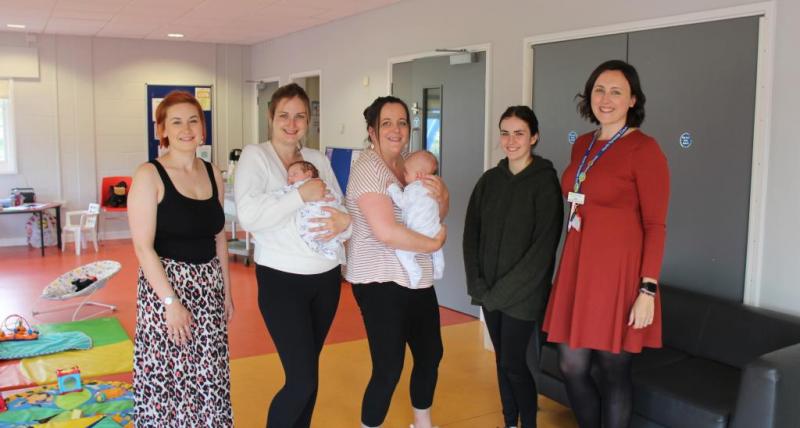
To coincide with World Breastfeeding Week, a partnership that looks after the health and wellbeing of North Tyneside’s residents is launching a strategy to support new parents.
Monday (1 August) sees the start of World Breastfeeding Week 2022, which aims to promote breastfeeding as part of good nutrition, food security and reduction of inequalities.
And to mark the week in North Tyneside, the borough’s Health and Wellbeing Board, in partnership with the Healthy Weight Partnership, will launch its Breastfeeding Strategy.
It too promotes the overwhelming value of breastfeeding and the critical role it plays in narrowing health inequalities within communities.
Encouragingly, breastfeeding rates in North Tyneside continue to exceed the regional average, however, the rate remains lower than the national average.
The strategy acknowledges this and explains there is more to do to create a more enabling environment and address some of the cultural norms surrounding breastfeeding.
Chair of the Health and Wellbeing Board, Cllr Karen Clark, who is also Cabinet Member for Public Health at North Tyneside Council, said: “I am delighted to be launching the strategy in North Tyneside, which considers breastfeeding as a public health issue and sets out the strategic direction to protect, promote, support, and normalise breastfeeding.
“Breastfeeding is so valuable for the mams and baby’s health, development and creating a positive relationship between parent and baby, however, I know from personal experience, it’s not always easy. Mams may need support – both to get started and to sustain breastfeeding – and to feel supported in the choices they make.
“We know that nationally eight out of 10 mams report they stop breastfeeding before they wanted to, often due to lack of professional, family and/or community support. The strategy will help us to address this in our borough.
“Working together with organisations on the board and our communities, we can help increase the number of women to breastfeed. If we do achieve this ambition, we will have better health outcomes for children today and for generations to come.”
The key aims of the strategy include supporting more mams to initiate breastfeeding, and continue to breastfeed; identifying smaller locality areas with low uptake and target services accordingly; and help to normalise breastfeeding and promote a positive breastfeeding-friendly culture across the borough.
Breastfeeding is valuable for mam, baby and societal health. Babies that are not breastfed are at higher risk of childhood leukaemia; gastrointestinal, ear and chest infections; diabetes; obesity and sudden infant death syndrome. Mams who do not breastfeed have a higher risk of ovarian and breast cancer, cardiovascular disease, and diabetes. For society, breastfeeding also has a role to play, the formula milk industry and waste associated has an impact the climate crisis, whereas there is little to no waste associated with breastfeeding.
North Tyneside Council has a dedicated infant feeding specialist who is a registered midwife and International Board-Certified lactation consultant, as well as a team of health visitors, staff nurses and midwives, child development practitioners, infant feeding public health assistants and more who are on hand to help with any feeding concerns or advice. Contact details for the Health Visiting team can be found online at www.northtyneside.gov.uk and searching for ‘children’s public health service’.
Organised by the World Alliance for Breastfeeding Action (WABA), World Breastfeeding Week runs globally each year from 1-7 August.
